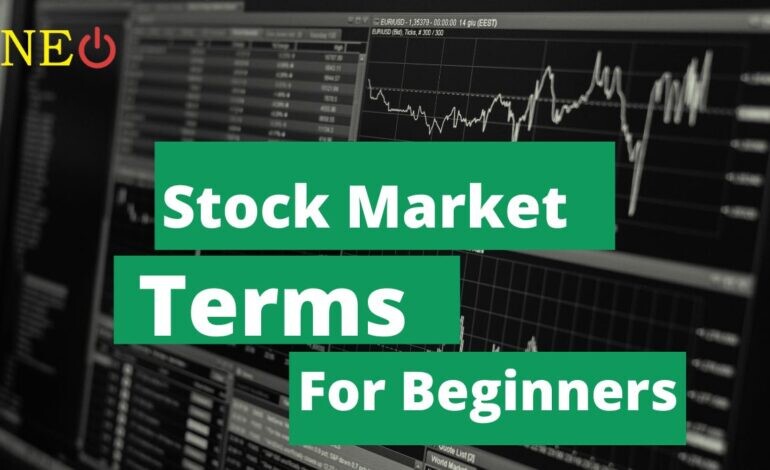People spend a lot of time researching the basic stock market terminologies used in the share market when they initially started out in the industry.
A stock market trader should be familiar with a variety of terminology, but there are a few that are used frequently.
If you wish to successfully enter the stock market, having a basic understanding of these terminology is crucial.
We're going to give a simple explanation of the fundamental phrases used in the stock market in this blog post to assist newcomers in understanding them.
What is the Stock Market?
The stock market is a specific kind of exchange where investors and businesses can buy and sell equities.
A stock represents the equity of the company whereas are the pieces of a company.
The stock market primarily has two functions.
First and foremost, to finance businesses so they can use the money to grow their operations.
The chance for investors to participate in the profits of businesses that are listed on the stock exchange is the second function of the stock market.
What do Stock Trading Terms mean?
When we read or speak about the stock market, we regularly employ stock market terminologies, which are industry-specific stock market words.
These terms are frequently used by both experts and beginners to discuss strategies, stock market charts, indexes, and other stock market components.
Basic Stock Market terms:
- Buy- To buy on the stock market, as the name suggests, is to obtain shares in exchange for money. Buy also refers to a stock that is recommended for purchase by an analyst. A “bull” by definition is an investor who buys shares because they believe the market is going to rise
- Sell- Sell refers to the act of exchanging existing shares in your portfolio for cash. Or it can represent a market analyst's advice to sell a certain stock. selling shares because you've reached your target or want to reduce your losses
- Ask- Ask is what people who are looking to sell their stocks are looking to get for their shares. The term "ask" refers to the lowest price at which a seller will sell the stock.
- Bid-The term "bid" refers to the highest price a buyer will pay to buy a specified number of shares of a stock at any given time
- Ask-Bid Spread– Spread is the difference between what people want to spend and what people want to get. The difference between the bid price and the ask price is called the "spread."
- Bull – A bull market is a market condition where investors are expecting prices to rise.
- Limit Order - A limit order is a type of order which executes at the price placed for buy or sell.
- Market Order – A market order is a type of order which executes as quickly as possible at the market price.
- Day Order – A day order is a direction to a broker to execute a trade at a specific price that expires at the end of the trading day if it is not complicated.
- Volatility – This means how fast a stock moves up or down.
- Going Long – Betting on the stock price will increase so that you can buy low and sell high.
- Averaging Down – This is when an investor buys as the stock goes down so as to increase the price at which purchased.
- Capitalization – This is what the market thinks a company’s value is.
- Float – This is the number of shares that can be actually traded after deducting the shares held by insiders.
- Authorized Shares – This is the total number of shares that a company can trade.
- IPO – It is an Initial Public Offering that happens when the private company becomes a publicly traded company.
- Secondary Offering – This is another offering in order to sell more stocks and to raise more money from the public.
- Dividend – Portion of the company’s earning which is paid to the shareholders.
- Broker – A broker is a person who buys or sells stocks on your behalf.
- Exchange – An exchange is a place where different types of investment are traded.
- Portfolio – A collection of investments owned by you.
- Margin – A margin account lets a person borrow money from the broker to buy shares.
- Sector – A group of stocks in the same sector.
- Stock Symbol – A one to three-character alphabet root symbol which represents a company listed on the exchange.


